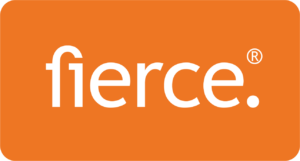When I’m thinking about improving a skill, to focus on something to be better, I often go to the definition of the skill of the word. For me, words matter, and I like to know how do others define it. When it comes to collaboration, I looked it up on the “interwebs” and found that it means to work jointly on an activity, especially to produce or create something. It’s that last bit that I really like to focus on if I’m looking to produce something or create something or get a different outcome.
That’s why I focus on collaboration, I like to think I know a few things, but I’m certainly not as brilliant as I am with a group of smart people around me. So with that end in mind, there are three things that I encourage you to also embed in your practice to get to those results you’re looking for. Whether it’s to produce something, to create something, or to get better results.
The first thing is to be genuinely curious
Really expand your horizons to achieve better outcomes by having a variety of ideas represented in options shared by others. When you’re doing that, think about who is not like you, and who thinks differently. In our terms, from a Fierce perspective, we often introduce a team conversation with the idea of a beach ball. Every single one of those stripes is represented by the different people that are part of your organization, that is part of your think tank, helping you to collaborate to get the outcome you’re trying to achieve.
As you’re adopting that curious mindset, focus on learning, growing, and expanding, instead of just trying to be right and that will help you to seek the outcomes that you’re trying to achieve. The other thing is to think about when you’re seeking input from others, pay attention to what they’re saying, really listen to understand. Sometimes it’s natural when you have others that provide opposing input or opposing perspectives, or something you hadn’t considered. It’s almost natural to dig in your heels and come back with why your idea is the one that you’re proposing.
Intellectually I know it makes sense, if you’re trying to collaborate, you should be open and this is one of the best ways to stay open is to focus on your listening.
Truly listen to understand…
where the other person is coming from, what are they representing, what is it they’re saying and not saying? Really appreciate the diverse perspectives that others can bring when you’re collaborating. The other advantage to listening well, so that you understand where the other person’s coming from, not just their words, but also the emotions behind them, you leave them with a powerful, uplifting emotional wake. People remember that, and they’ll want to come back and collaborate more with you in the future.
The other thing to keep in mind, to embed in your practice as you’re collaborating, is really for yourself, push those boundaries. The longer any one of us holds on to a view or a perspective, the harder it is to appreciate different ones, from a different perspective. We tend to really love our well-worn grooves because they’re easy and they require little expended thought or action, right?
Make it a practice to make yourself uncomfortable
maybe once a week, if you want to start off slower once a month. You decide where you are, but really find those things that put you on the edge of your comfort zone, because that’s where you really have to pay attention.
I had a colleague once that was an expat in Belgium, and she described how just the simple act of leaving the apartment with her spouse and forgetting the key took an entirely different amount of effort than if she had done that at alone. The need to really pay attention to the surroundings and understand where everything is. It was all new, so all of her senses were heightened.
That’s the sort of thing I’m talking about when I’m asking you to consider pushing your boundaries. Things like taking part in a group where you aren’t the expert, where you know very little about the subject to offer a perspective, maybe even taking on leading a project that’s not in your functional area, to really learn, understand and make yourself uncomfortable.
When you’re in those settings and there’s a lot of people talking, whether it’s a team meeting, group meeting, seminar that you go to, wherever you are, where other people are around. Raise your hand and ask the question that will reveal to others that you’re still learning, you don’t know it all. That’s the sort of thing that will help you to expand and to grow and to develop some new, well-worn paths for yourself.
The other thing to keep in mind if you’re pushing your boundaries is to…
Seek the unfamiliar
Where are those mouse traps in your functional area of the business that needs some reconstruction or better opportunities to get those outcomes you’re looking for? Really push comfort level, I know that sounds like a lot, it’s almost become a trite expression and yet it’s so powerful. We learn more when we are paying close attention when all of our senses are heightened, and that’s often on the fringe of where we’re comfortable.
If you’re looking to improve your collaboration skills, keep in mind embedding those 3 practices that I just mentioned. Be genuinely curious, and listen to understand what others are saying. Push your own boundaries to expand your view of the world.
Remember to close where you started. Ultimately, start with the end in mind. Why are you collaborating, what outcome is it that you’re trying to achieve, and what do you want to create and build? With that in focus and these three tips embedded in your thinking, your success is practically guaranteed.



